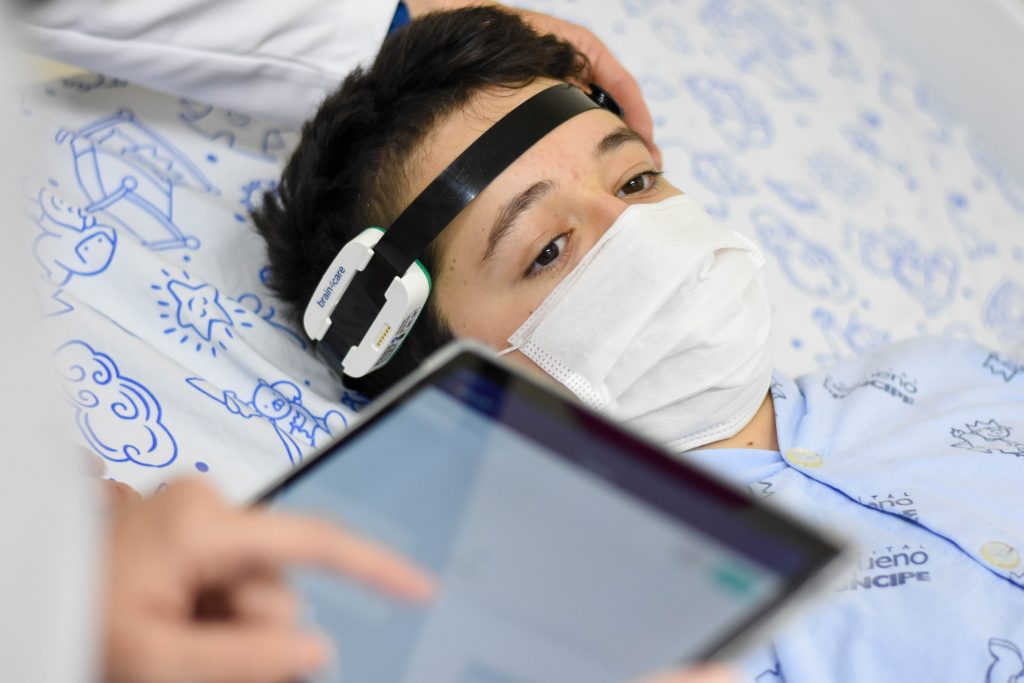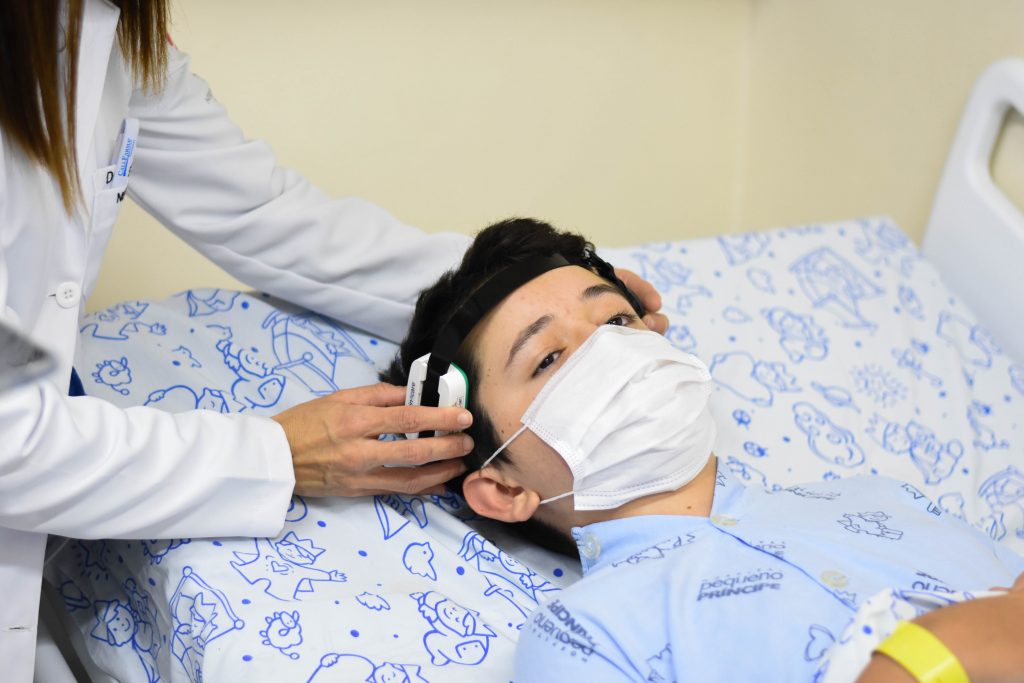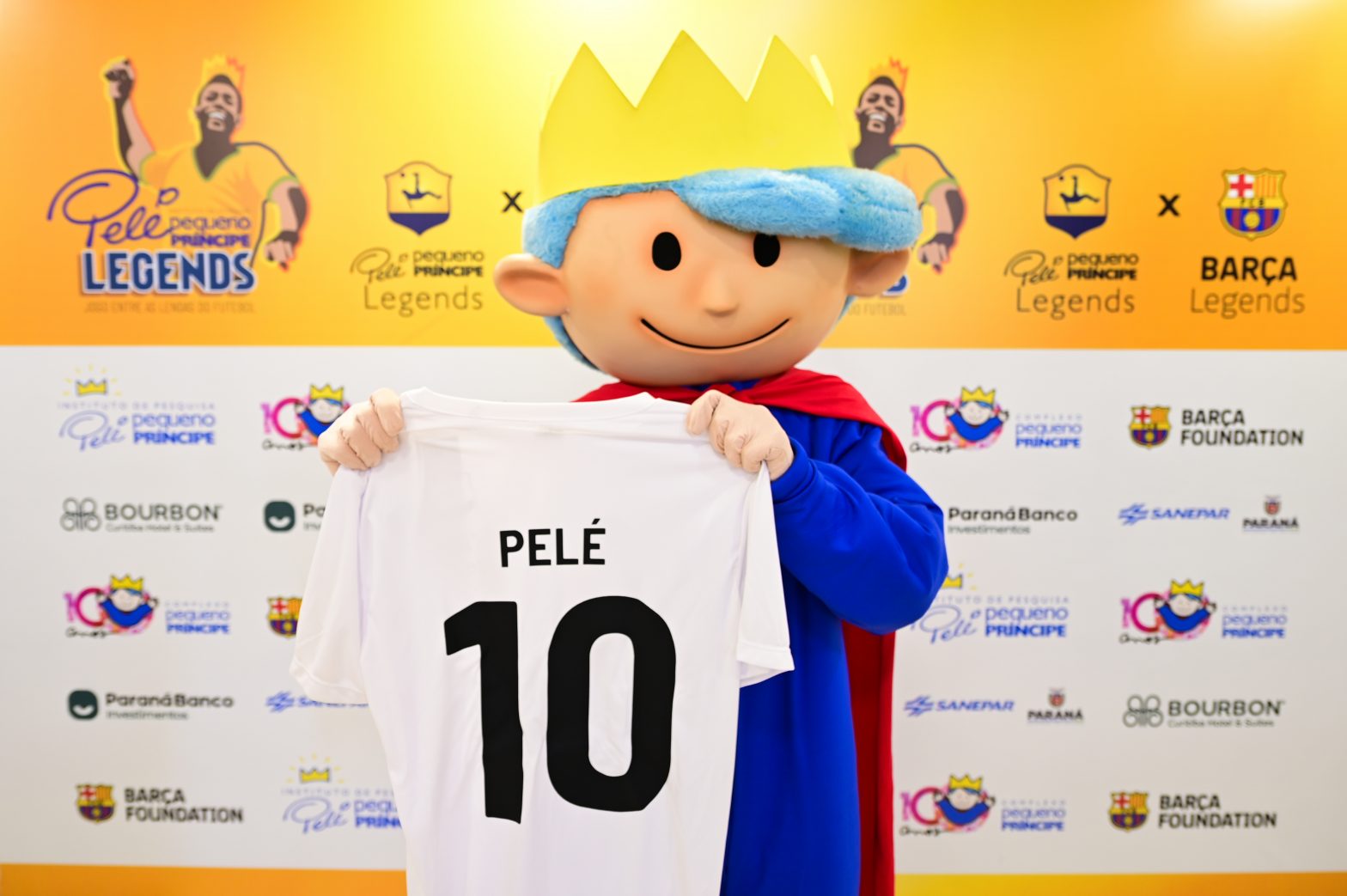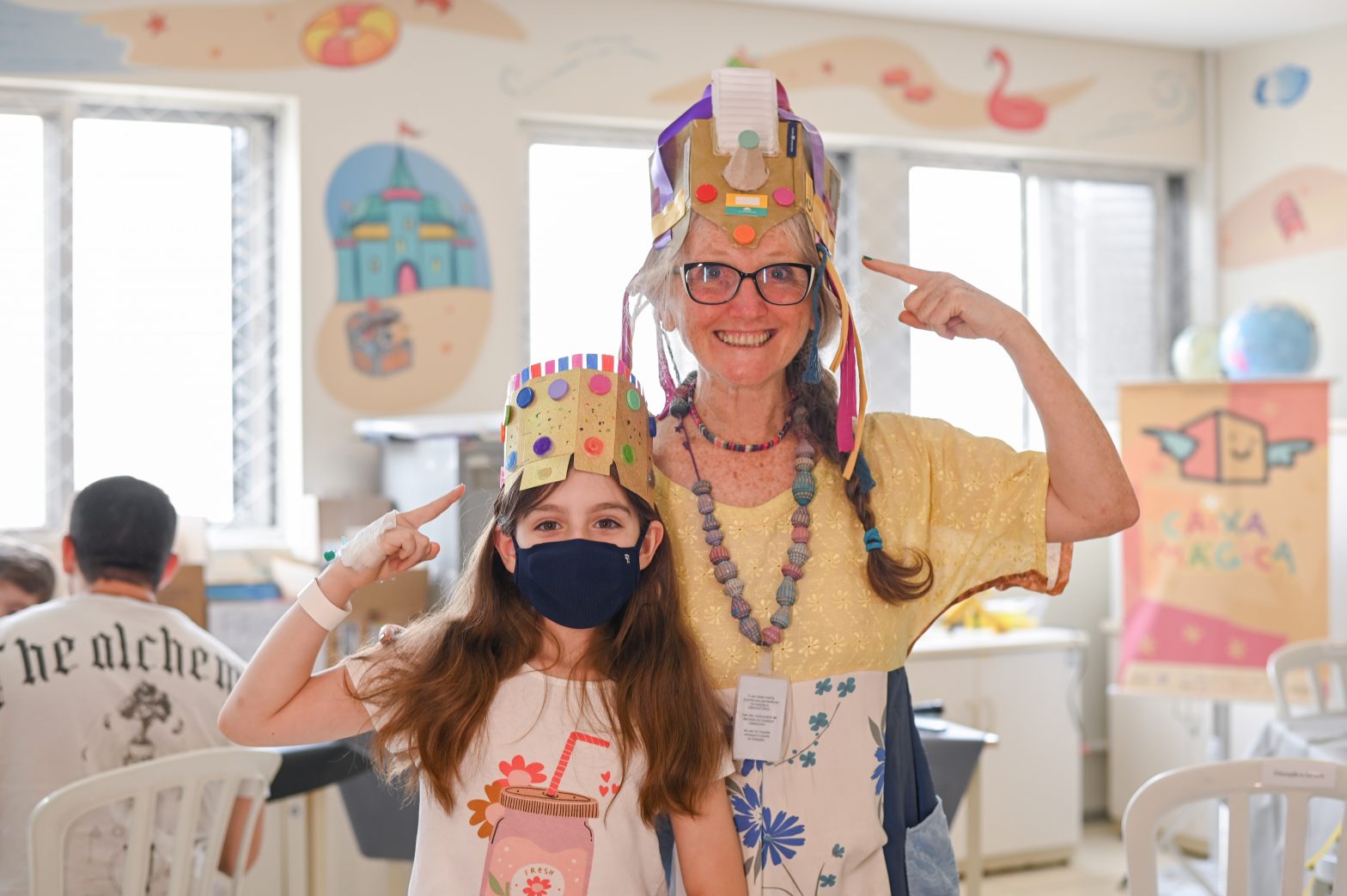Research by Pequeno Príncipe validates non-invasive method of monitoring intracranial hypertension in pediatrics
A study proving the results of brain4care was published in “Scientific Reports”, from the Nature Group, one of the most relevant open access scientific journals in the world
A clinical study published by professionals from Pequeno Príncipe has validated an innovative healthcare solution for pediatrics: brain4care, the world’s first completely non-invasive device for monitoring brain functions and the risk of intracranial hypertension. The solution, which was already validated for use in adults, provides important assistance in the treatment and detection of intracranial hypertension secondary to numerous causes, from trauma to brain tumors.

The study was published in Scientific Reports, by the Nature Group, and proves that brain4care represents an advance in the area of pediatric health, as it allows the identification or confirmation of changes in brain compliance with even greater quality and safety. Previously, this control was only possible through invasive surgery with the insertion of a catheter into the intracranial area.
The deputy technical director of Quality and Clinical Research at Pequeno Príncipe Hospital, Fábio de Araújo Motta, highlights the importance of the publication for children and adolescents’ health. “We are creating a unique reference in the world, something that had not yet been validated by peers. Non-invasive monitoring of the risk of intracranial hypertension may become a new vital sign in healthcare,” he states. “For our institution, committed to technology and innovation, this represents a significant gain, because, just as we did with TytoCare, we were able to validate an important technology in pediatric patients that will have the potential to impact one billion people in the next ten years, according to Singularity University,” Motta emphasizes.
About the research
The study carried out was observational cross-sectional, a type of epidemiological research that analyzes a population at a given point in time, collecting data simultaneously.
Intracranial compliance – the brain’s natural ability to stabilize pressure and prevent it from increasing – was analyzed using brain4care in 55 neurologically healthy children. The patients were aged between 2 years and 17 years and 11 months and were recruited exclusively from the Pequeno Príncipe Hospital.

Conducted between February 2021 and August 2022, the study demonstrated the ease of use of the device, its comfort and good acceptance of its use, as well as making it possible to determine a normal range of values for measuring intracranial compliance in pediatric patients. “The data obtained help determine normal values with the brain4care sensor. This helps us detect acute changes in intracranial lesions with increased pressure, which – if not controlled – can lead to worsening neurological conditions and, eventually, even death,” explains one of the researchers in the study, head of the Pediatric Neurosurgery Service at Pequeno Príncipe Hospital, neurosurgeon Adriano Keijiro Maeda.
The brain4care solution
Created by scientist Sérgio Mascarenhas – who passed away in 2021 –, brain4care has become a deep tech (startup based on scientific research). By providing non-invasive monitoring of intracranial pressure, the equipment allows the medical team to assess and monitor the evolution of the risk of neurological damage in patients in clinics and hospitals, assisting in the triage of cases, in the rapid and assertive diagnosis of associated pathologies and in the definition of conducts. The solution is innovative, painless and does not require medication, preparation or contrasts, and this allows the time interval between use and results to be reduced. Monitoring through the device qualifies support for decision-making.
“This study is completely unprecedented in the literature. It begins a new era of intracranial pressure monitoring in the pediatric population, providing better results and faster decision-making using a 100% non-invasive method,” highlights neuropediatrician Simone Carreiro Vieira Karuta, author of the article and one of the investigating physicians.
More
The Pequeno Príncipe brings Barça Legends to Curitiba, in a game celebrating King Pelé’s Day
Stars such as Cafu, Tinga, Alex Meschini, Ricardinho, Fernando Prass and Uruguayan Diego Lugano, led by Mano Menezes, are confirmed in the Pequeno Príncipe Team, which will play against the legends of the Spanish club on November 17th
Emotion marks the 15th edition of the Pequeno Príncipe Gala
Event that mobilizes support for the cause of children and adolescent health exceeded its fundraising goal
Patients of the Pequeno Príncipe transform recyclable materials into works of art
Visual arts workshops that led to the creation of the works are one of the many sociocultural inclusion initiatives made possible by the Culture Incentive Law
Pequeno Príncipe launches endowment fund with initial investment of US$ 600,000
Futurin aims to guarantee the financial sustainability and longevity of the institution’s health assistance, teaching and research activities










